As the world of work continues to change rapidly and new industries emerge, professionals must grow their skillsets to remain competitive job applicants. As a result, accountants are in high demand, with the Bureau of Labor Statistics projecting a 19% increase in jobs for accountants by 2026. An accountant’s resume is your first chance to impress an employer with your knowledge, skill, and value as an employee. A well-crafted accountant resume will lead you to the interview stage faster than an average resume. Also, it’s worth mentioning that Certified Public Accountant (CPA) certification can open up more career opportunities as a professional accountant and give you a competitive edge when applying for jobs as an accounting specialist. In this blog post, we will explore tips on creating an effective accountant resume that stands out from other applicants. Read on to learn more about what makes up this type of resume and practical examples to get you started.
Accountant Resume Example

Download This Accountant Resume as PDF
Accounting Manager Resume Example
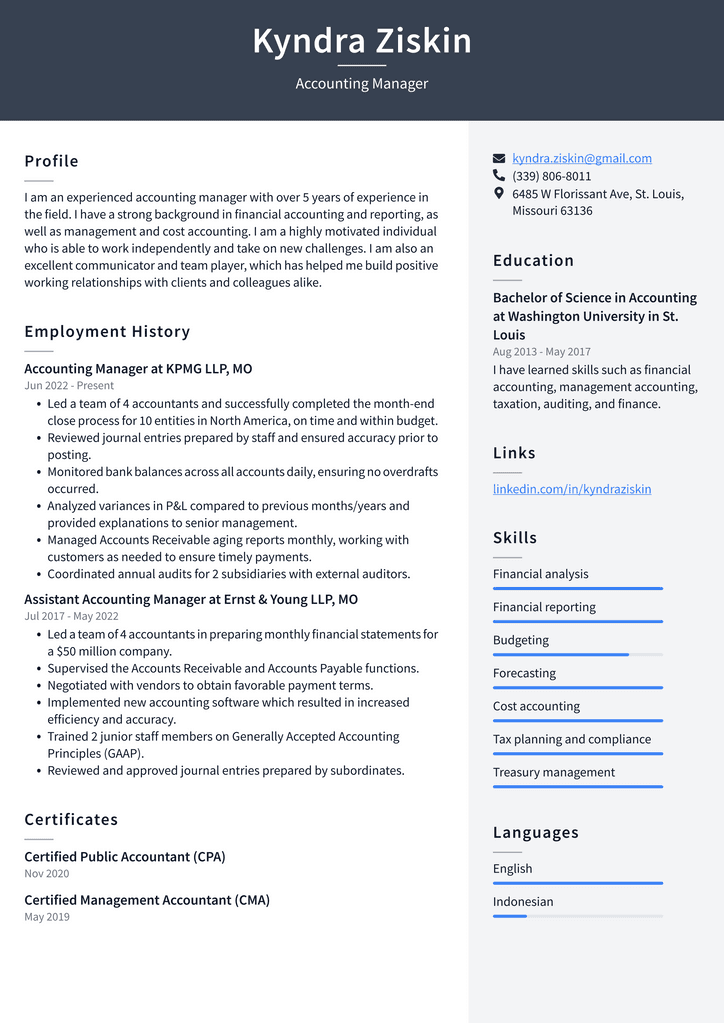
Download This Accounting Manager Resume as PDF
Finance Manager Resume Example
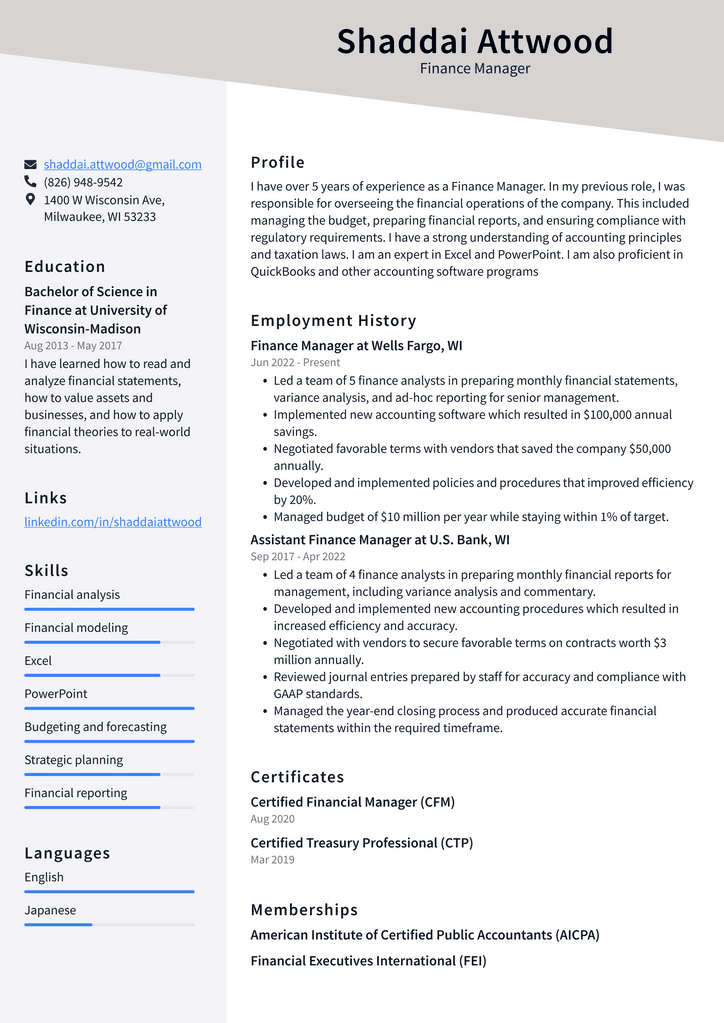
Download This Finance Manager Resume as PDF
Controller Resume Example
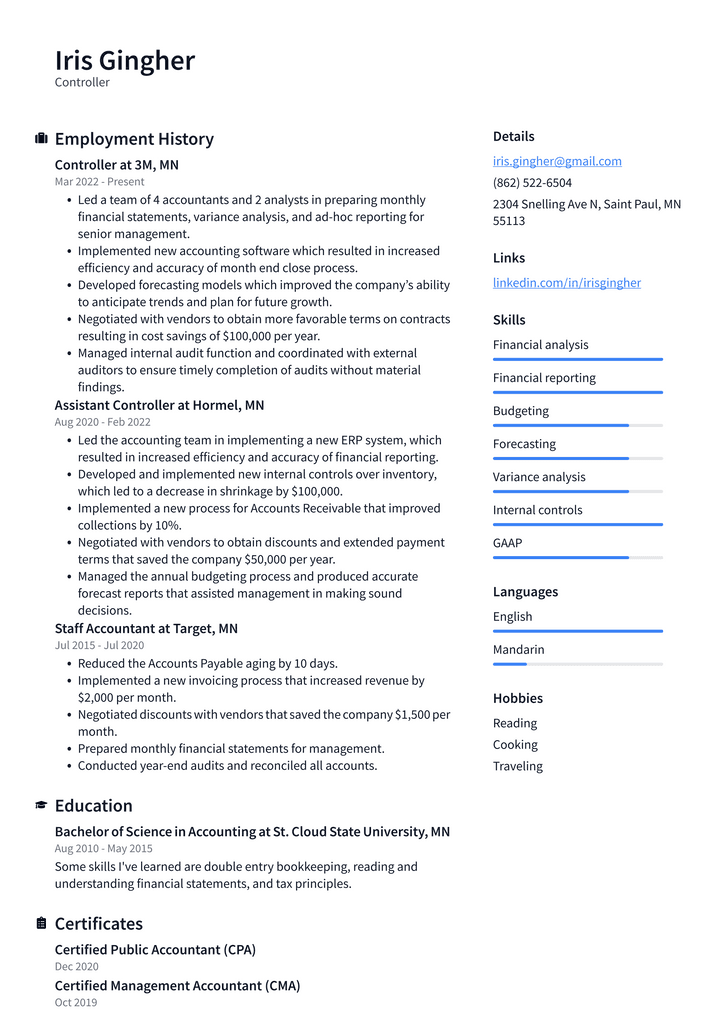
Download This Controller Resume as PDF
Treasurer Resume Example
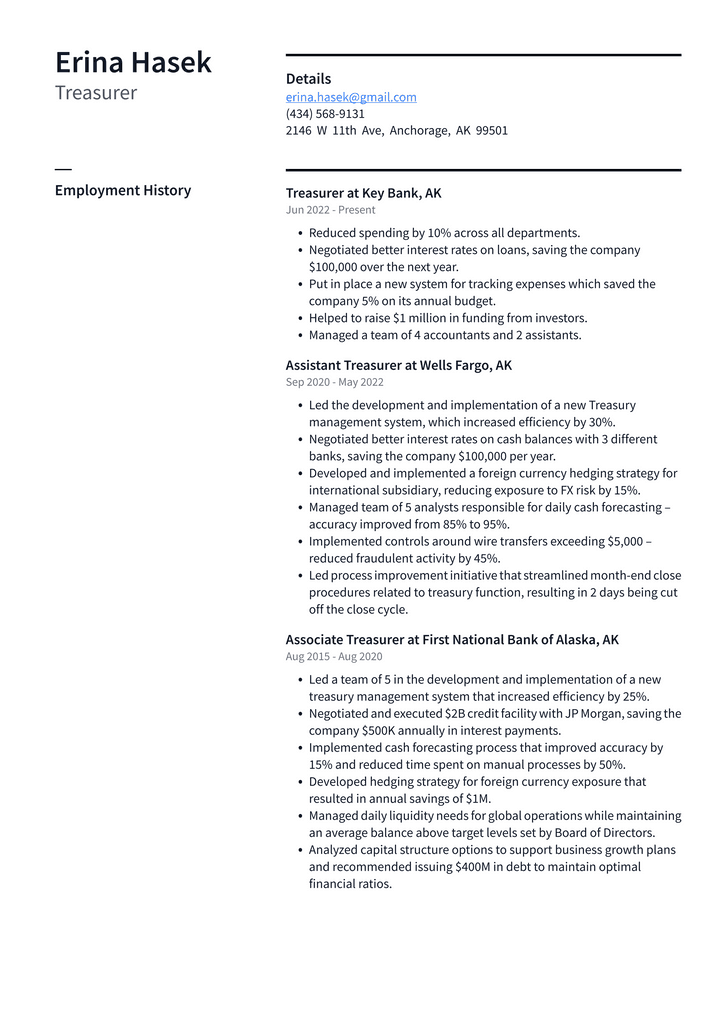
Download This Treasurer Resume as PDF
Senior Accountant Resume Example
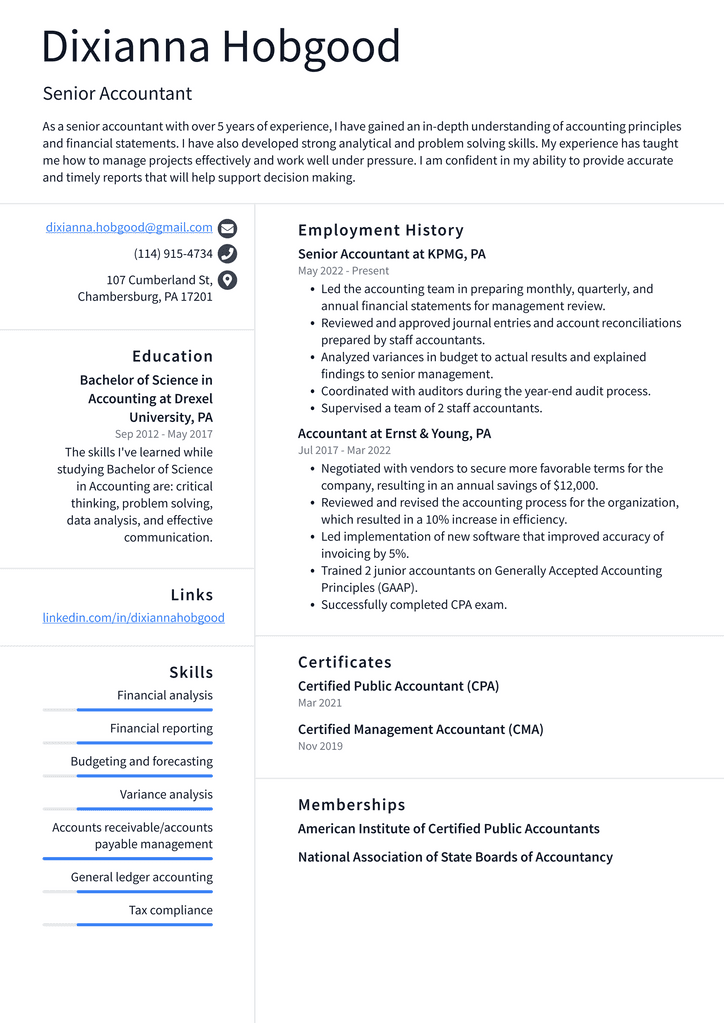
Download This Senior Accountant Resume as PDF
Chief Financial Officer Resume Example
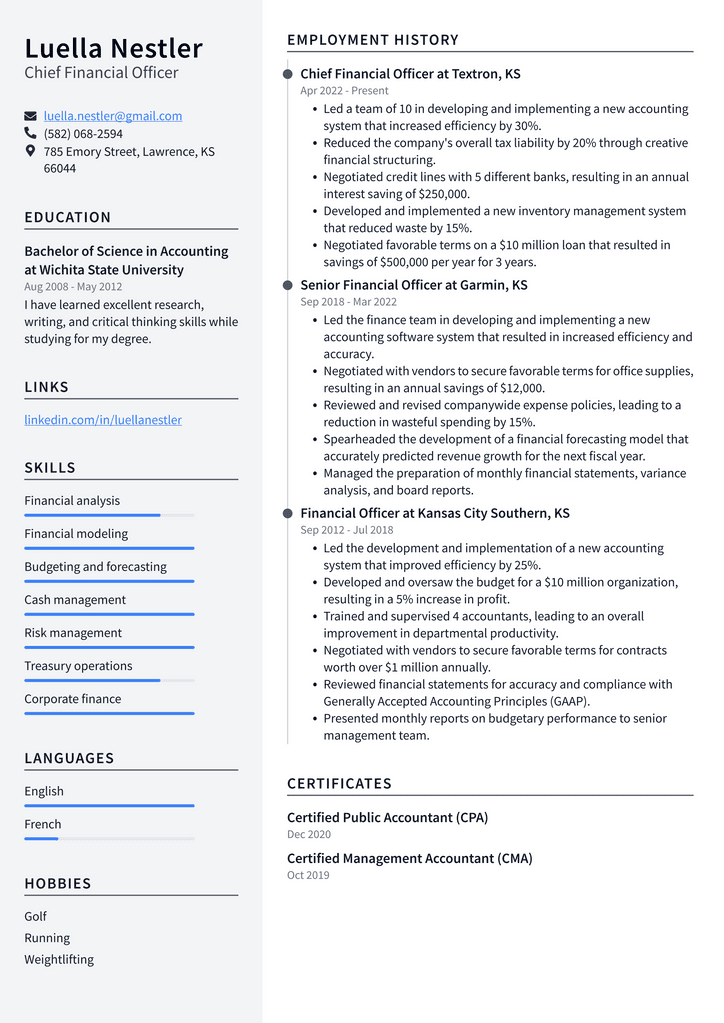
Download This Chief Financial Officer Resume as PDF
What is an Accountant Resume?
An accountant’s resume is a marketing document accountants use to sell their skills to potential employers. Accounting is a service-based industry, so your resume will be the first thing hiring managers to see before meeting you in person. Therefore, your accountant resume must be tailored to the specific needs of each job you apply to and highlight your skills, education, experience, and value to the company. In general, accountant resumes are similar to those used for other business administration roles. Your accountant resume should provide a snapshot of your career to date, relevant skills, and career goals. It should also include details about your education and experience and what you can offer an employer. The resume is often the only opportunity to sell yourself as a job candidate, so it must highlight your best qualities.
Critical Skills for an Accountant Resume
Accountants have many different responsibilities and job descriptions, so the skills required in one accountant’s resume will differ from another. Accountants need strong analytical skills, excellent communication skills, and attention to detail to succeed. The following are essential skills to include in your accountant resume. – Communication: Accountants must be able to communicate with all levels of an organization, as well as other departments and vendors. – Critical Thinking: Being able to analyze data, research, and conclude is a core skill for accountants, so your resume should highlight your critical thinking ability. – Financial Knowledge: A good accountant understands financial concepts and can apply them to real-world situations. – Microsoft Excel: Accounting is mainly paperless, but many accountants use Microsoft Excel to make calculations and track their progress. – Research: Accountants must be able to conduct research and draw conclusions from various sources.
Why is a Good Resume Important?
Your resume is your first chance to show an employer that you are qualified for the job. It is your opportunity to sell yourself and convince the employer that you have the skills, experience, and education needed for the position. The average employer will review your resume just six seconds before deciding whether to continue reading or move on to the next applicant. Therefore, your resume must be well-written, error-free, and attention-grabbing to be effective. A professionally-written resume is an essential career tool that can help you get the job you want. It describes your experience and education and shows employers that you are serious about finding a job and are knowledgeable about the industry.
The Importance of Good Writing in a Resume
Your writing skills can make or break your resume. If your resume is poorly written, be prepared for rejection. You’re more likely to be considered in, the other hand, if you apply for a job and your resume is impeccably written. With that in mind, it’s essential to follow the tips below when creating an accountant resume. – Keep your resume to two pages. Employers prefer shorter resumes, so you should eliminate unnecessary information to keep your resume to two pages. – Know what you want to say. Before you write anything, you should know precisely what you want to say. Your resume should highlight your skills and experience and why you are the best candidate for the job. – Avoid vague statements. Instead of generalizing your experience, list quantifiable results. – Proofread your resume. Always have a friend, or family member proofread your resume for mistakes. – Use correct grammar and terminology. Make sure you use proper grammar and terminology in your resume, especially in industries like accounting. Remember that you’re representing yourself as a professional. – Use action verbs and numbers.
Tips for Writing a Professional Accountant Resume
If you’re ready to create a professional accountant resume, use these tips to help you create an effective resume: – Know the hiring manager’s needs: Before you begin writing your resume, you should research the company to help you tailor your resume to their specific needs. – Create a vision for your future: Your resume is your career vision statement. Create a statement that will guide you in your career goals. – Identify your target employers: Knowing them will help you tailor your resume to their needs. – Create a career progress map: A career progress map is a visual representation of your resume. – Use a resume template: A resume template will help you create a professional resume consistent with industry standards. – Review hiring manager tips: Review hiring manager tips and find out how you can improve your resume.
Conclusion
The accountant resume is an important marketing tool that you can use to get your foot in the door for your next job. If you’re an accountant, it’s essential to know what your resume should look like. You can use this sample resume to help you create your resume. You can also use the suggestions above to help create a professional accountant resume that hiring managers will appreciate. Your resume is your introduction to employers and is often the first interaction you have with them. Therefore, you must represent yourself in the best light possible by providing a clear vision of your skills and experience and what you can contribute to the company. With these tips and examples, you can create a professional accountant resume that will get you noticed, land more interviews, and help you advance your career.